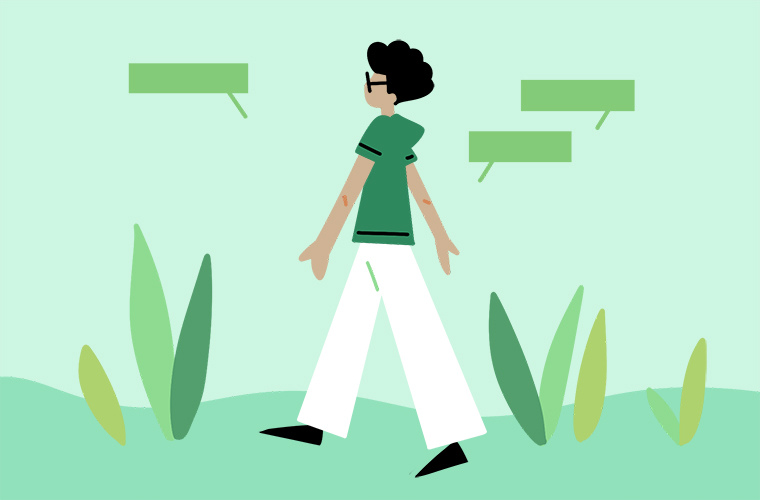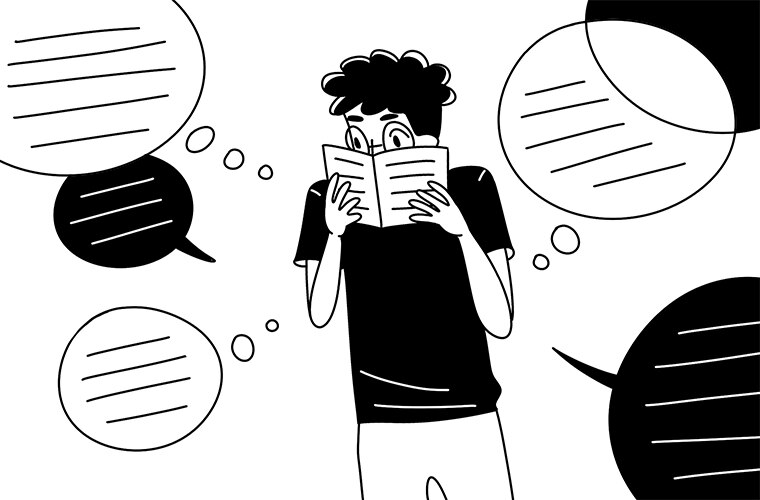请点击全屏查看
2018宜昌市中考英语模拟试题
英 语 样 题讨论稿
本试卷共部分,满分120分,考试时间120分钟。
注意事项:
本试卷分试题卷和答题卡两部分,请将答案写在答题卡上每题对应的答题区域内,写在试题卷上无效。
考试结束,请将本试题卷和答题卡一并上交。
第一部分 听力(共三节,满分 25 分)
第一节(共 5 小题;每小题 1分,满分5 分)
听对话选择图片:你将听到五段对话,请根据听到的内容选出五幅相关的图片。每个句子后你有5秒钟的答题时间。听一遍。



A B C



D E F
第二节(共 15 小题;每小题 1分,满分15 分)
听对话或独白回答问题:你将听到几段材料,每段材料之后你将看到一个或几个问题。请根据这些材料内容,选择能回答所提问题的最佳答案。每段材料之后你有5至10秒钟的答题时间。听两遍。
请听第一段材料,回答第6至7小题。
6. Where are the man’s keys?
A. On the sofa. B. On the desk. C. On the floor.
7. (2018宜昌英语)How much should the woman pay?
A. $2. B. $3. C. $6.
请听第二段材料,回答第8至9小题。
8. What’s the matter with the man?
A. He has a headache. B. He has a stomachache. C. He has a toothache.
9. What’s the man’s opinion about the life in the future?
A. There will be more pollution.
B. There will be less pollution.
C. There will be no pollution.
请听第三段材料, 回答第10至第11两个小题。
10. What are causing more environment problems according to the woman?
A. People’s activities. B. Animals’ activities. C. Fewer plants.
11. What does the man usually do on weekends?
A. He usually plays basketball.
B. He usually watches NBA.
C. He usually talks about Kobe.
请听第四段材料, 回答第12至第14三个小题。
12.(2018宜昌英语) How does the man feel about Kobe’s leaving?
A. Happy. B. Sad. C. Crazy.
13. How often did the man volunteer in the library?
A. Once a week. B. Twice a week. C. Three times a week.
14. Who is Mr. Zhang?
A. A Chinese teacher. B. A math teacher. C. An English teacher.
请听第五段材料, 回答第15至第17三个小题。
15. When may the party be held?
A. Next Sunday. B. Next Saturday. C. This Saturday.
16. What does the speaker do?
A. A visitor. B. A writer. C. A reporter.
17. What does the speaker think of the job?
A. Difficult but great. B. Difficult but exciting. C. Tiring but great.
请听第六段材料, 回答第18至第20三个小题。
18. What was Lisa doing for the homeless children in a year?
A. Looking for a house. B. Feeding them. C. Sending them to hospital.
19. How was the Japanese woman’s son at last?
A. He was missing. B. He was dead. C. He was alive.
20. What was the Chinese boy doing when the speaker met him?
A. Studying. B. Smiling. C. Speaking.
第三节(2018宜昌英语)(共 5 小题;每小题 1分,满分5 分)
听短文填写表格:你将听到一段短文, 请根据听到的短文内容完成表格中的有关信息。
听完短文之后你有1分钟的答题时间。听两遍。
Mid-Autumn Festival | |
The story behind the festival | Chang’e and Hou Yi were a (21)________. A goddess gave Hou Yi (22)________ to thank him. Pang Meng tried to steal it but Chang’e (23) and drank it. Chang’e flew up to the moon and Hou Yi missed her a lot. |
How people celebrate the festival | People admire the moon and (24) mooncakes with their families. |
The meaning of mooncakes | They carry people’s (25)________ to whom they love and miss. |
第二部分 语言知识运用 (共 3节,满分40 分)
(共15小题,计15分。)
单项选择: 从下列各题所给的A、B、C、D四个选项中选择一个可以填入空白处的最佳答案。
26. (2018宜昌英语)---Whose is this book written by Yang Jiang?
---Carol’s favorite writer is Yang Jiang. It be hers.
A. mustn’t B. must C. can’t D. can
27. ---The Chinese scientist Tu Youyou won the 2015 Nobel Prize.
---Her has saved millions of lives across the world.
A. victory B. story C. discovery D. industry
28. ---Have you heard of a cool washing machine called Bicycle Washing Machine?
---Yes, it’s a new by a group of Chinese university students.
A. invention B. information C. instruction D. introduction
29. ---Home is place wherever you go.
---East or west, home is the best.
A. warm B. warmer C. warmest D. the warmest
30. ---It has been raining for days. When will it stop?
---It is that the rainy season will be longer than last year.
A. says B. said C. saying D. to say
31. ---If you always yourself with others, you may have tons of pressure.
---I agree. We should believe in ourselves.
A. compare B. communicate C. create D. consider
32. ---Did you get Wechat red(微信红包)during the Spring Festival?
---Yes. It’s the most popular way of sending traditional holiday presents now.
A. totally B. widely C. actually D. hardly
33. ---The government is plenty of money building the countryside.
---We are pleased with the government’s efforts.
A. costing B. paying C. taking D. spending
34. (2018宜昌英语)---Food safety has become a social focus now.
---That’s why laws are made to crimes on food.
A. record B. prevent C. divide D. separate
35. ---Attention, please! I have good news for you about your flight.
--- ?
A. What are they B. Where is it C. How are you D. What is it
36. ---When are we going to see the movie ZooTopia, this afternoon or tonight?
--- is OK. I’m free today.
A. Either B. Neither C. Both D. All
37. ---Learning to love is like learning to walk.
---Yes, we step out bravely, we’ll find it’s not so difficult.
A. as if B. even though C. as long as D. as far as
38. ---The firemen did all their best to put out the fire.
--- excellent firemen!
A. What B. What an C. How an D. How
39. ---There will be more and more robots going into people’s homes.
--- . We might be able to leave all the chores to them.
A. Not really B. No way C. You’re kidding D. I hope so
40. ---Excuse me. Is there a bus to the Olympic Center?
--- . You can take the No. 111 bus.
A. Yes, it is B. Yes, there is C. I’m not sure D. Sorry, I have no idea
2018宜昌英语(共15小题,计15分。)
完形填空:先通读下面短文,掌握其大意,然后从各小题所给的A、B、C、D四个选项中,选出一个最佳答案。
My father was a self-taught mandolin(曼陀林琴)player. He was one of the best players in our town. He could not (41) music, but if he heard a tune(曲子)a few times, he could play it. When he was young, he was a (42) of a small country music band. They played at local dances and the radio station.
At home Dad often got out his mandolin and played for the family. We three children sang along. (43) played the mandolin like my father. He could (44) your heart with the music that came out of that old mandolin. He seemed to shine when he was playing. You could see his (45) in his ability to play so well for his family.
But Dad had to find another (46) in a factory later because the money he made at the band wasn’t enough to (47) the family. Unluckily he had an (48) one day and lost one finger. He couldn’t play as (49) as before. From then on, every time we asked him to play, he would make up reasons to (50) down our request. However, we missed his performance so much. (51), he agreed and said “Okay, but remember, I can’t hold down on the strings(琴弦)the way I (52) to”. When he played the old mandolin, it carried us back to a (53), happy time in our lives.
Dad was that kind of man. (54) was what he was doing all his life. If he could give (55) to others, he would, especially his family. He was always there, sacrificing(牺牲)his time to see that his family had enough in their life.
41. A. express B. raise C. read D. lead
42. A. dancer B. member C. driver D. friend
43. A. Nobody B. Somebody C. Anybody D. Everybody
44. A. shut B. touch C. cover D. hurt
45. A. doubt B. truth C. pride D. worry
46. A. job B. wallet C. game D. hobby
47. A. start B. work C. value D. support
48. A. action B. accident C. argument D. exam
49. A. deep B. fast C. well D. loud
50. A. turn B. break C. close D. lay
51. A. Nearly B. Exactly C. Certainly D. Finally
52. A. regretted B. used C. kept D. pointed
53. A. careful B. forgetful C. cheerful D. helpful
54. A. Giving B. Receiving C. Changing D. Taking
55. A. production B. pleasure C. purpose D. patience
第三节(2018宜昌英语)(共10小题,计10分。)
综合填空:根据所给首字母、汉语或上下文,完成空格中所缺单词,使短文完整、通顺。每个空只能填一个词。
A hobby is an interesting way of s 56 your free time. There are so m____57___ different hobbies for different people to choose. Some hobbies are very popular, o____58_____ are quite unusual. You may choose one that you are ____59___ in. You may enjoy collecting things such as stamps, stones, coins ____60_____ so on.
If you like to work with your hands, you may enjoy model making and paper _____61____(剪), which both need great attention in detail(细节). Or you may enjoy creative hobbies, ____62_____(像) painting and writing. Many people ____63____(喜欢) outdoor activities to indoor activities. They get great pleasure from the activities that they can enjoy with others.
Wherever you live, there ____64_____always a hobby for you to choose. The hobby can help you _____65____(放松) after your daily work. The hobby can give you many hours of pleasure and make your free time interesting and creative. The hobby can bring you happiness, knowledge and friendship.
第三部分(2018宜昌英语)阅读与写作(共 4节,满分55分)
共10小题,计20分。
阅读下面两篇短文,根据短文内容选择最佳答案。
A
Tyler was a troublesome student. He sat in the back row. Every time I called him to answer questions, he’d reply with a flip(轻率的)answer. If he got it wrong, he would get very angry.
Usually kids could sit quietly in class. However, Tyler was just loud. One day, Tyler was talking while I was teaching. I said to him, “Tyler, why not join in our discussion instead of having one of your own?” He got up from his chair, pushed it over, and shouted something I can’t remember. I sent him to the office and he received a week’s out-of-school punishment.
The week was a wonderful time for me, but when it came to an end, I began to feel worried. So I came up with a plan. On the day of his return, I told him I wanted to start over with him. If he felt like he was going to lose control in class, he could step outside the door for a moment.
From then on, Tyler was a changed student in my classroom. In fact he was a smart child and he even stopped a fight between two students one day. And he never used the privilege(特权)to leave the class for a moment. I believe that just letting him decide for himself made all the difference.
When the year was over, he wrote me a thank-you note about how good the year had been for him. I still have it today and find it very moving to reread when I get stressed about teaching.
66. When Tyler was talking in class, the teacher advised him to .
A. join in their discussion B. have his own discussion
C. get up from his chair D. go out of school
67. Tyler changed after .
A. shouting at the teacher B. losing control in class
C. having the privilege to decide for himself D. helping the teacher manage the class
68. (2018宜昌英语)Tyler did all the following things EXCEPT .
A. sitting in the back row B. leaving the class for a moment
C. stopping a fight between two students D. not listening to teachers in class
69. Every time the teacher reads the thank-you note, he feels .
A. stressed B. worried C. satisfied D. moved
70. The passage is mainly about .
A. how Tyler got the punishment
B. how Tyler changed to be a good student
C. how the teacher dealt with Tyler’s return
D. how the teacher felt about Tyler’s thank-you note
B
There are many different kinds of disasters around the world. As an adult you know what to do during a disaster, but what about the children? Some adults think it would probably never happen to them, so they don’t teach their children what to do. Before it’s too late, here are ways to help you prepare your child for a disaster:
Educate: It is always good to let your child know about possible disasters. This doesn’t mean children have to live in fear. When teaching them about disasters, keep the conversation positive(积极的)by telling them there is a solution(解决办法)to the disaster. Keep the conversations short, allow for questions and answer honestly.
Prepare: Always be prepared, that is the best advice for children. For example, when preparing for bad weather, get the tools you need, like candles, radios, food, water and medicine. Teach your child what is needed in certain disasters so that they know what is available for them, if ever needed.
Plan: You should always have a plan for you and your child for any dangerous situation. Write out a simple list that they can read. The plan could start with “listen to an adult’s advice and/or call 119”.
Practice: Once you have got the correct safety tools and worked out the right plan, practice every few months. Practicing what to do during a disaster with your child will help them if the time comes.
Disasters can’t be avoided but they can be lessened(减轻)once you are prepared and ready for one.
71. What does the word disaster mean?
A. 命运 B. 灾难 C. 演习 D. 倾销
72. What should adults teach children?
A. When disasters will happen. B. Why disasters are dangerous.
C. What to do for a disaster. D. How to avoid a disaster.
73. (2018宜昌英语)What is the correct thing to do for adults?
A. Have positive conversations with children.
B. Try not to talk about disasters with children.
C. Make the children scared of disasters.
D. Ask children lots of questions.
74. What’s the most important thing for children?
A. Always ask adults for help. B. Always be prepared for a disaster.
C. Always listen to an adult’s advice. D. Always remember where the tools are.
75. What is NOT suggested doing?
A. Remembering what is needed in certain disasters.
B. Getting the children to know the plan well.
C. Helping people in disaster areas.
D. Getting radios for bad weather.
(共5小题,计10分。)
阅读短文,将方框里的五个句子还原到短文当中。
C

My house is on a hill. There was only a small parking place. As a new driver, I was so scared when I realized I would have to reverse(倒车)out of the driveway. I knew that if I parked backwards(朝后), it would be easier to get out later. (76) .
For three months, I didn’t even think of trying. (77) . But one day, I suddenly thought to myself, “How am I ever going to know whether I can do it if I don’t even try?”
So I started my car, went down that hill, turned around and reversed. I made it. I got into the parking place. (78) .
As weeks went on, I continued trying. The more I practiced, the better I did. But I had never practiced parking in the dark before. Then I decided to push myself. (79) .
When I slowly drove to the parking place, I couldn’t see anything. My heart was beating rapidly. A moment later I guessed I was getting somewhere, I let the car go. Oh, my god! The car hit a tree. (80) . But I tried it after all.
(共5小题,计10分。)
根据所给汉语和提示词完成下列句子。
81. 明天的社会实践活动每个人都要准时参加。(on)
Everyone is supposed to be for the social practice tomorrow.
82. 放松并不是浪费时间,毕竟生活不应该只有学习和工作。(waste)
Relaxing isn’t . Anyway, life shouldn’t just be about study and work.
83. 他的眼神告诉我们他渴望得到失踪同伴的确切消息。(thirsty)
His eyes tell us he the exact information of his lost teammates.
84. 我的美国朋友爱上了宜昌,希望在此长住。(fall)
My American friend Yichang and she wishes to live here forever.
85. 两个月以来,已经有400名大学生参加了“手机忍者”的测试。(take)
400 college students the test called Mobile Phone Ninja since two months ago.
书面表达: 为丰富学生的校园生活,鼓励学生参加体育运动,学校每年都会开展形式多样的运动会。既为有体育特长的同学提供了展示的舞台,也给了其他同学自由表现的机会。运动会中有人奋力拼搏,有人乐于帮助,有人善于宣传报道……请你写出某次运动会中自己的表现和感受,并为学校的运动会提出1~2条具体的建议。
要求:1.80词左右。
2.文中不得出现真实的人名、校名及地名。
英语试题卷第 6页(共8页)

孔乙己是贫困潦倒的知识分子。在书中,孔乙己是一个知识分子,满口“之乎者也”,但是他很穷,还窃书,说过“读书人的事,怎么能叫窃,”被人嘲笑,他...

自然界产生氧气的化学方程式:光合作用的反应式为6CO2+12H2O→C6H12O6+6O2+6H2O。包括光反应和暗反应两个过程。需要具备光...

有的高校没有条件,只要学业水平成绩都合格就可以,比如中国科学院大学。有的需要平常学习考试成绩,比如北京外国语大学要求高三第一学期期末成绩在全...

在四则运算中,表示计算顺序,在小括号之后、大括号之前;表示两个整数的最小公倍数;表示取未知数的整数部分;在函数中,表示函数的闭区间;在线性代...

济南开设的最好的职高学校有:济南方信集团职业高中、济南公共交通职业高中。济南市公共交通职业高级中学是由济南市公共交通总公司承办,业务属济南市...

实然:是说事物实际上就是这样的,但不同于现实性(现实性指其有合理性和客观性);应然:就是应该是怎么样的意思,比如说这件事,就应该是那样的结果...

地中海气候一种夏季炎热干燥、冬季温和多雨,雨热不同期的气候类型。地中海气候冬季受西风带控制,锋面气旋频繁活动,气候温和,最冷月的气温在4-1...

碱石灰,又称钠石灰,碱石灰是白色或米黄色粉末,疏松多孔,是氧化钙(CaO,大约75%),水(H₂O,大约20%),氢氧化钠(NaOH,大约3...